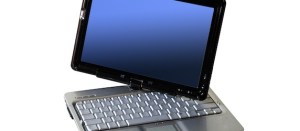And – Cultural Capture
I was asked to write something about an idea that I had slipped into 13 Bankers, almost in passing, about the cultural prestige of the financial industry and the political and regulatory benefits the industry derived from that prestige. My chapter turned into a discussion of the various mechanisms by which status and social networks can influence regulators, creating the equivalent of regulatory capture even without traditional materialist incentives (cash under the table, promises of future jobs, etc.).
Two weeks ago, an investigation by ProPublica and This American Life illustrated the culture of deference, risk aversion, and general sucking-upitude among New York Fed bank examiners that effectively resulted in the capture of regulators by the banks they were supposed to be regulating. As David Beim wrote in a confidential report about the New York Fed, the core problem was “what the culture expected of people and what the culture induced people to do.”
I wrote about the story for the Atlantic and referred to my book chapter, but at the time the chapter was not available for free on the Internet (at least not legally). The good people at the Tobin Project have since put it up on the book’s website, from which you can download it (legally!). Note that they are only allowed to put up one chapter at a time and they rotate them, so this is a limited-time offer.
Link: Cultural Capture and the Financial Crisis
More: http://jameskwak.net/
Conclusion
Your thoughts and comments on this ME-P are appreciated. Feel free to review our top-left column, and top-right sidebar materials, links, URLs and related websites, too. Then, subscribe to the ME-P. It is fast, free and secure.
Speaker: If you need a moderator or speaker for an upcoming event, Dr. David E. Marcinko; MBA – Publisher-in-Chief of the Medical Executive-Post – is available for seminar or speaking engagements. Contact: MarcinkoAdvisors@msn.com
OUR OTHER PRINT BOOKS AND RELATED INFORMATION SOURCES:
- PRACTICES: www.BusinessofMedicalPractice.com
- HOSPITALS: http://www.crcpress.com/product/isbn/9781466558731
- CLINICS: http://www.crcpress.com/product/isbn/9781439879900
- ADVISORS: www.CertifiedMedicalPlanner.org
- FINANCE: Financial Planning for Physicians and Advisors
- INSURANCE: Risk Management and Insurance Strategies for Physicians and Advisors
- Dictionary of Health Economics and Finance
- Dictionary of Health Information Technology and Security
- Dictionary of Health Insurance and Managed Care
Filed under: Financial Planning, Investing | Tagged: Dan Carpenter, David Beim, David Moss, James Kwak, Luigi Zingales, Richard Posner, The Financial Crisis, Tino Cuellar, Tobin Project | 2 Comments »





















